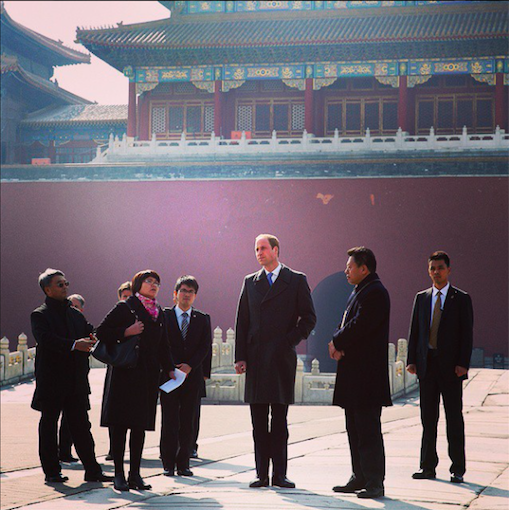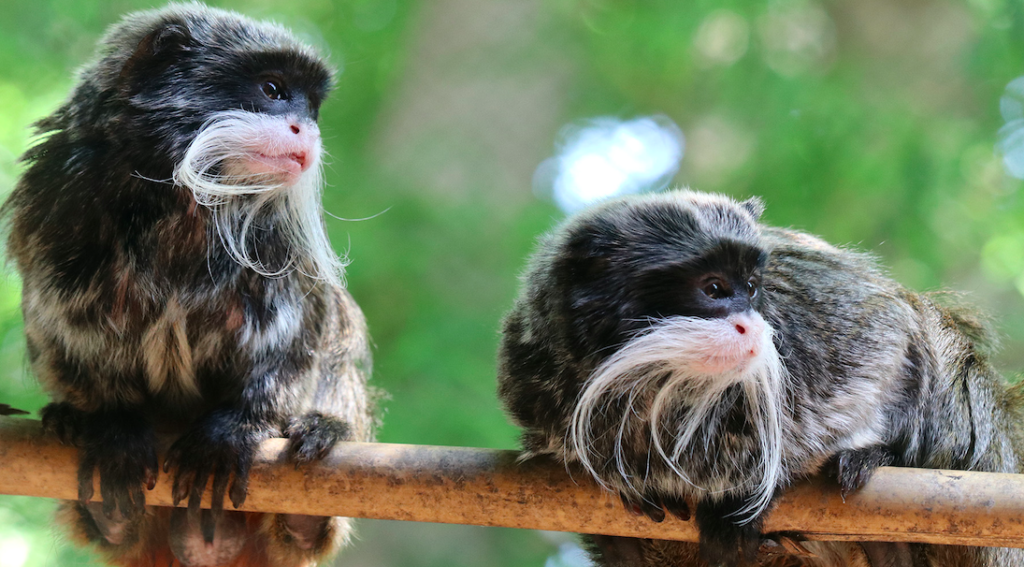As the Duke of Cambridge met with Chinese President Xi Jinping during the highest-profile UK royal to visit the country in almost three decades, he didn’t shy away from discussing wildlife protection in a place where the issue is controversial.
Prince William has been leading an international crusade to crack down on poaching and the illegal trade in animals. China has long been fingered as one of the world’s top offenders, responsible for importing live elephants for entertainment purposes and fuelling an increasing demand for ivory.
Chinese officials said during meetings today, the prince and the president discussed wildlife protection. And, that meeting comes as China imposed a one-year ban on ivory on just days ago.

That ban on the import of ivory carvings, however, has been described as “more symbolic than effective.” China has a significant domestic processing industry, which churns into action once the ivory is smuggled in raw.
The ivory ban was announced by China’s State Forestry Administration in a statement on its website last week. China is a signatory to the Convention on International Trade in Endangered Species, but critics blame China for nearly singlehandedly causing poaching of elephants by the tens of thousands.
Sammi Li, a spokeswoman for TRAFFIC, the wildlife trade monitoring network, said the ban is official recognition by China for its role in the illegal ivory trade. But she told AFP: “The actual volume to be banned is rather small, so the ban is more symbolic than effective.”
International efforts have been ramped up to save the world’s plummeting elephant population. The Obama administration is pushing efforts in the United States and there are state-level initiatives as well.
For example, the Wildlife Conservation Society and the 96 Elephants campaign is applauding a new bill introduced in the Florida senate that would ban the sale of elephant ivory.
“Banning ivory sales is a key component to an overall strategy to save Africa’s elephants from the ravages of poaching and the illegal wildlife trade, and Florida can play a leadership role in this global effort. Already, New York and New Jersey have banned the sale of ivory, while California, Hawaii and Massachusetts have introduced bills to ban ivory sales,” the campaigners note.
China, however, is a completely different beast. Regulated sales are legal. There’s a massive domestic carving industry. And, Chinese collectors often see the trinkets as investments.
Still, China is also feeling pressure closer to home. Leaders of Hong Kong’s largest political party are pushing for a commercial ivory ban in China. The Democratic Alliance for the Betterment and Progress of Hong Kong wants to outlaw the domestic sale and transportation of elephant ivory in China and officials plan to discuss the issue with Beijing during meetings this month. Their proposal:
A ban on ivory and ivory products. Due to the increasing demand for ivory products, around 100,000 African elephants were poached between 2010 and 2012. If poaching doesn’t stop, wild African elephants will become extinct by 2025. China has strictly followed [the Convention on International Trade in Endangered Species of Wild Fauna and Flora] to ban all trade in rhino horn and tiger bone, so we now suggest to do the same for ivory. We suggest to ban the domestic sale and commercial transportation of ivory and ivory products, increase public awareness on the conservation of elephants and all other endangered species, and educate the public to say no to ivory.
Prince William is expected to speak at a wildlife conservation conference during his visit to China. Also, on the prince’s itinerary: touring Yunnan province where 250 wild Asian elephants call home. He is also set to see rescued elephants.
Prince William is the most senior British royal to visit since the Queen’s tour of China 1986.

Photos The Tsavo Trust/Facebook





Comments